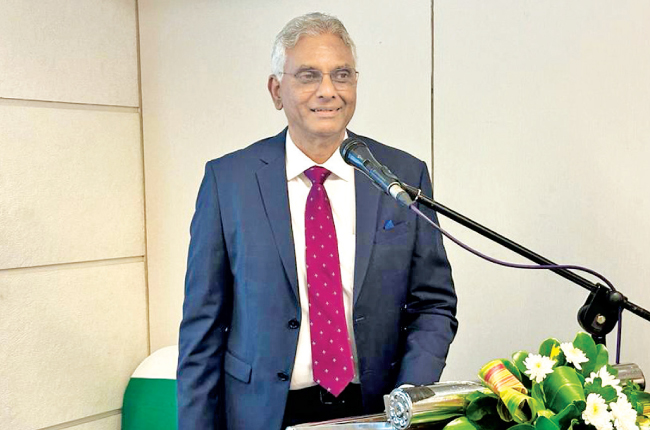Sri Lanka is the only country in the world to ban Oil Palm while its nearest neighbour India is expanding Oil Palm cultivation exponentially said President Palm Oil Industry Association (POIA) Rohan M. Fernando at their 4th Annual General Meeting at Cinnamon Grand yesterday.
Whilst the ban of Oil Palm still remains in Sri Lanka, Prime Minister Modi has now mandated India to plant up to 3 Mn hectares, as a strategy of import substitution. India is one of the largest consumers of Palm Oil and was importing to the tune of over USD 4 billion and with this plantation drive this will stop by the year 2030.”
The POIA has been going through a turbulent period since being set up and the Executive Committee (ExCo) has tried its utmost to counter the baseless allegations against Oil Palm and strengthen the functions of the POIA. “However we are confident that there will be light at the end of the tunnel in the New Year.”
Due to our representation to Government authorities an Expert Committee was appointed and at the Plantation Reform Committee meeting held on April, , 2023, under the Chairmanship of President Ranil Wickremesinghe it was confirmed that the Expert Committee report was positive. The President then instructed to permit replanting Oil Palm.”
Despite this positive development, the ban on Oil Palm still remains. “Those responsible for banning Oil Palm may not entirely agree that it was an ill-conceived decision. However many believe that at least the issue should have been examined carefully with advices from the experts, before hastily imposing the ban.”
Unfortunately no one has taken account of the effects of the ban and its cost to the Country’s economy, by importing edible oil to meet the edible oil requirements in the domestic market. There are many published papers and articles on this subject, which highlight its cost to the economy.
This is a good case study for Sri Lanka, as the vegetable oil demand keeps increasing day by day. The government approved plant Oil Palm to an extent of 20,000 hectares in 2014, considering the edible oil demand of 80,000 Mt per annum. “If not for the ban, the country would have benefited by producing at least 50% of the edible oil demand by the year 2025.”
It is a well-known fact that productivity of Oil Palm is almost 4 times that of coconut oil and hence it will take many years for the country to increase coconut oil production.
We are hopeful that the Sri Lankan authorities will understand the advantages of expanding Oil Palm cultivation and take action to lift the ban. (SS)







